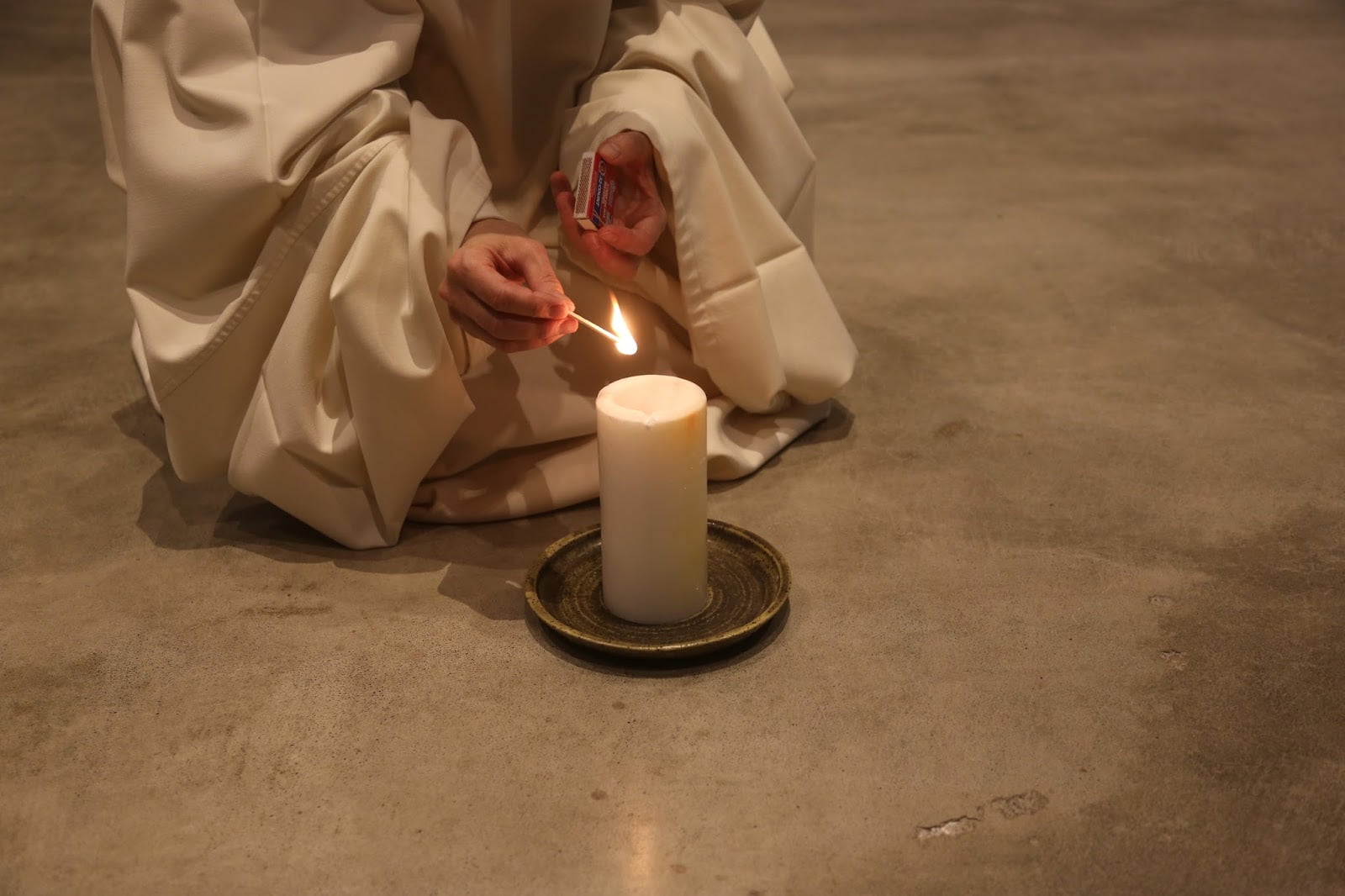Always on the fourth Sunday of Easter we have the theme of shepherd: the Risen One who embodies the qualities of shepherd. The gospel readings for each cycle A, B, and C are taken from chapter 10 of St. John’s gospel. For us 21st century persons we don’t readily constellate towards the image of ‘shepherd’. During the time of Jesus, ‘shepherd’ was an experiential image, one that related to the living context of his hearers, and thus one in which the hearers of this gospel could easily relate to and enter into.
If we go deeper into the image of ‘shepherd’, its underlying poetry, its meaning and nuances, we can feel and understand the importance of it for our lives, and for discipleship. Imagine that we have this reality living in us all the time: Just feel into the images from Psalm 22: with God as my shepherd, I am filled….‘there is nothing else I shall want’. I am given repose in ‘fresh, green pastures’; led to ‘restful waters where my soul is revived, restored’; guided and led along the ‘right path’ true to the Divine name; walking ‘in the valley of darkness no evil is feared’ because I am not alone, the Presence is there to comfort and assure. This shepherding reality is what lives in each one of us. In Psalm 22 it is very easy to see the face of the Risen Christ, of the One who has breathed his Spirit upon and within us.
In the gospel of today the disciples hear the Shepherd’s voice…they hear and follow…and the Shepherd already knows them even before they hear his voice. And here is the promise of the God of unrequited Love: “The lost I will seek out, the strayed I will bring back, the injured I will bind up, the sick I will heal, shepherding them rightly” (Ez 34:16). This is the Divine reality embodied in Christ that never leaves us…we live and move and have our being in this God-Life.
Aelred of Rievaulx writing in the twelfth century pens a Pastoral Prayer directed to the ‘Good Shepherd’ Christ. He evidently is feeling the need for support, for the shepherding of Christ to guide and sustain him in his ministry as Abbot of his large community. What is striking in his prayer is that after a very brief crying out to the Lord, he immediately turns to an ‘act of contrition’. In other words, he first goes inward. He looks honestly at what is within his own heart: his evil inclinations and his sins. He then writes: “My whole heart renders thanks and praise to you with all its might for all these benefits. But I am no less in your debt for all the evil things I have not done. For, most assuredly, whatever evil thing I have not done, it was your guiding hand that made me abstain from doing it; since either you did take away the means thereto, or else you did correct my inclination, or gave me the power to resist” (p.106-107). Then, he includes those ‘sinful’ things he has done and needs forgiveness. This is saying to me how important is the process of conversion as we live out our vocation.
We all are called, no matter how old, no matter what our work is, no matter whether we are monastics or doing some more ‘active’ ministry, to embody these same qualities of Shepherd that Jesus so radically lived for us and for the life of the world.
Today is the ‘53rd World Day of Prayer For Vocations. Pope Francis in his message for this day wrote: “Conversion and vocation are two sides of the same coin, and continually remain interconnected throughout the whole of the missionary disciple’s life.” We continually need to turn and return to the Divine Shepherd for support, for courage to be shepherded in our need and for the grace to live and witness this same shepherding in our daily lives. Having ‘Good Shepherd Sunday’ combined with prayer for vocations in the Church is a beautiful connection or correspondence. To live our vocation totally and to the end is to embody the essential qualities of the Divine Shepherd. Francis then adds this: “The vocational journey is undertaken together with the brothers and sisters whom the Lord has given to us: it is a con-vocation. The ecclesial dynamism of the call is an antidote to indifference and to individualism. It establishes the communion in which indifference is vanquished by love, because it demands that we go beyond ourselves and place our lives at the service of God’s plan, embracing the historical circumstances of his holy people.” Living our vocation is a journey done together not alone, not in isolation from one another. This ‘con-vocation’, meaning it is a journey ‘undertaken together’, is the medicine leading us beyond our selfish selves, the medicine for indifference and individualism. Living our vocation, not counting the cost, is laying down our lives for one another and for the world. It is reflective of what the ‘Good Shepherd’, Christ, has done and continually does in our lives, and through our lives as we open ourselves to being led and guided, open to the flow of grace.
The images of ‘tending’ life, of ‘caring’ for the life entrusted to each of us, the risk, the giving of all that we are, the love we are called to embody and that stretches us each step of the way, all these qualities and more give us content to what it means to follow Jesus, to let the ‘Good Shepherd’ be manifested in how we live our lives. Are we ready, each day, ‘to lay down our lives’ for one another, for the on-going life of this community, for the on-going life of our world?


